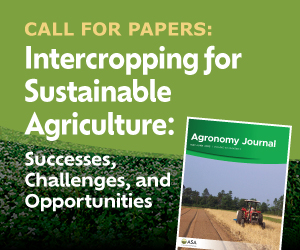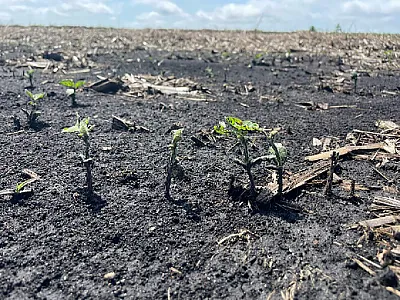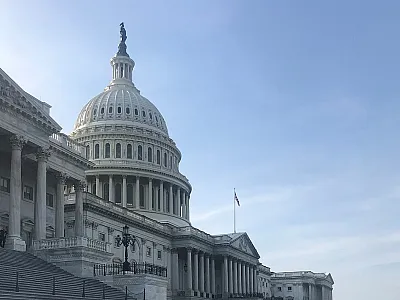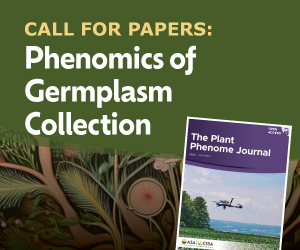Communicating our Successes and Needs to Elected Officials
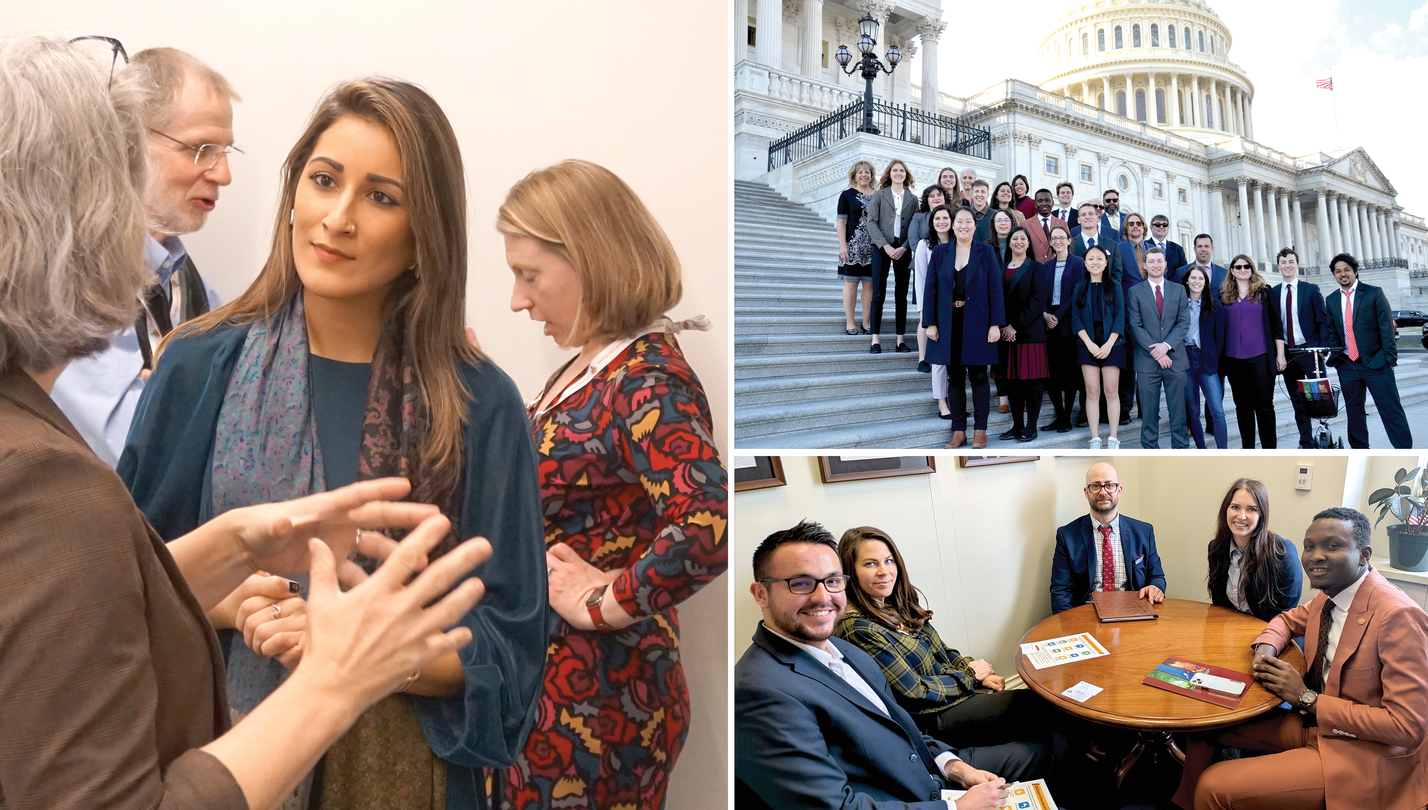

Greetings! This month, I want to share some thoughts about the recent Congressional Visits Day that was held in Washington, DC and online with representatives and senators of the United States Congress. A huge thank you to Dr. Rachel Owen, Associate Director of Government & External Relations, for her great work in organizing these events, in collaboration with the Torrey Advisory Group.
Some of you know that ASA is regularly communicating our agronomic science successes and needs to elected officials in the U.S. Congress.
You may have brought an important agronomic issue directly to the government or asked a colleague to speak about it on your behalf. Other members may be less familiar with ASA’s science policy activities. I would like to explain why we do this, and why it matters to you.
Why Do We Talk to Government Officials?
Why do we talk to government officials? You may ask, “What’s the point?” or “Why would a representative or senator listen to me?” In a democratic society, elected persons in every level of government, from the local county boards to the president of the United States, were voted to represent you, their constituents. Elected officials speak on your behalf in the government, which
makes decisions for citizens. Many of these decisions have a direct effect on your daily life—for instance, your access to basic essentials, education, and employment.
Elected officials have accepted a heavy responsibility to represent you in the government, but we cannot expect them to be an expert on every issue. We all know how quickly agronomy is changing and how hard it is to keep up with developments in our own field let alone other disciplines. Congress needs, and appreciates, our input and our help to make the best decisions they can related to agronomy.
For more than two decades, ASA has been engaged in an ongoing dialogue with elected officials in Washington, DC because we believe that our voices make a difference when it comes to supporting agronomy. This year, we asked more than 95 representatives and senators to support appropriations to the USDA. We made this request because ASA thinks more funding is needed to support the research and technologies that help agronomists and farmers to make agriculture more resilient, now and in the future.
You may be wondering, “How does ASA get the representative or senator to hear this message and do something about it? Government officials must be receiving between hundreds and thousands of requests every day, on so many issues. How do we know that they are paying attention to the needs of ASA?”
In fact, ASA’s greatest resource to achieve government action is YOU, each and every ASA member! You know what problems you are facing and how they impact you and your community personally. You probably know how to solve the problem, even if you don’t have the resources to carry out the solution yourself. This is exactly the type of story that elected officials love to hear. When a representative or senator can defend their vote or decision by showing that it solved a problem for the people in their district, everyone wins.
When ASA members inspire the government to act and solve a problem, this is what we call science policy, which is not the same as politics. To be honest, I don’t know a lot about science policy for
agronomists in the United States because I am a citizen of Canada, which has a different parliamentary system and agricultural policies. I was, however, really impressed with my visit to the U.S. Congress! We had great discussions with staff who were genuinely interested in our requests, and most were willing to sign a “Dear Colleague” letter to support our issue. Besides our scheduled office visits, we did spontaneous “drop in” visits at offices of other representatives and senators of the states we represented where we were graciously welcomed. It was a great experience for our team (Arlo Robles, Barret Wessel, Georgia Eastham, and myself), which was made up of half student members and half professional members of ASA.
Seeking Support for These Priority Areas
In addition to the USDA appropriations request, we also sought support for several priority areas in the upcoming farm bill, namely:
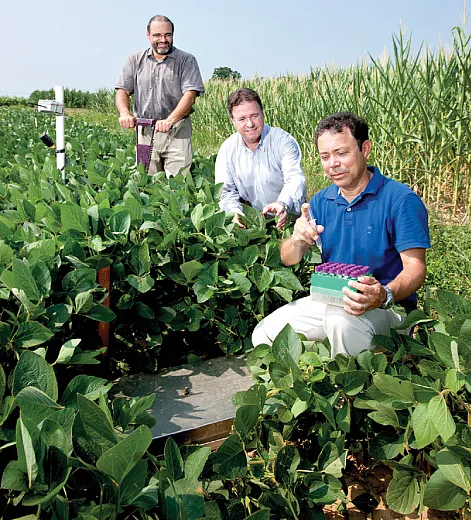
1. We would like Congress to provide permanent, baseline funding to the Foundation for Food and Agriculture Research (FFAR) program. This is a vital support program for public–private partnerships, aiming to translate innovative research into practical tools and services for agronomists and their clients.
2. We ask Congress to reauthorize the Agriculture Advanced Research and Development Authority (AgARDA) as a full-scale ARPA1 program at USDA. This will guarantee investment into high-risk, high-reward agricultural research, which will pioneer the next advances in agronomic R&D. 1 ARPA is the Advanced Research Project Agency that arose out of the need to support high-risk, high-reward projects in the defense sector (DARPA) and has since had agencies develop in the intelligence (IARPA), energy (ARPA-e), and health (ARPA-H) areas.
3. We need the support of Congress to improve coordination of agriculture climate research and data collection for climate-smart agriculture practices. The USDA is poised to deliver this program through Regional Climate Hubs, which are designed to improve regional response to climate-related disruptions and give direct technical assistance to farmers, ranchers, and foresters.
4. We asked Congress for help to make it easier for trusted, on-farm advisers to meet the technical assistance needs of USDA. The idea is to update the Technical Service Provider (TSP) certification process to make it easier for Certified Crop Advisers (CCAs) and other on-farm advisers and professionals to deliver timely and relevant assistance to agricultural producers in our communities.
If one of these priorities resonates with you, and you have a personal story that you would like to share with your elected official, please let us know! Everyone is welcome—student, professional, and emeritus ASA members. Please contact Dr. Rachel Owen, Associate Director of Government & External Relations for ASA-CSSA-SSSA, at rowen@sciencesocieties.org or 608-268-4965. As always, please do not hesitate to contact me and the other members of your ASA Board of Directors, as well as your Section Leaders and Community Leaders with your ideas, stories, comments, questions, and concerns. We look forward to hearing from you!
Text © . The authors. CC BY-NC-ND 4.0. Except where otherwise noted, images are subject to copyright. Any reuse without express permission from the copyright owner is prohibited.



